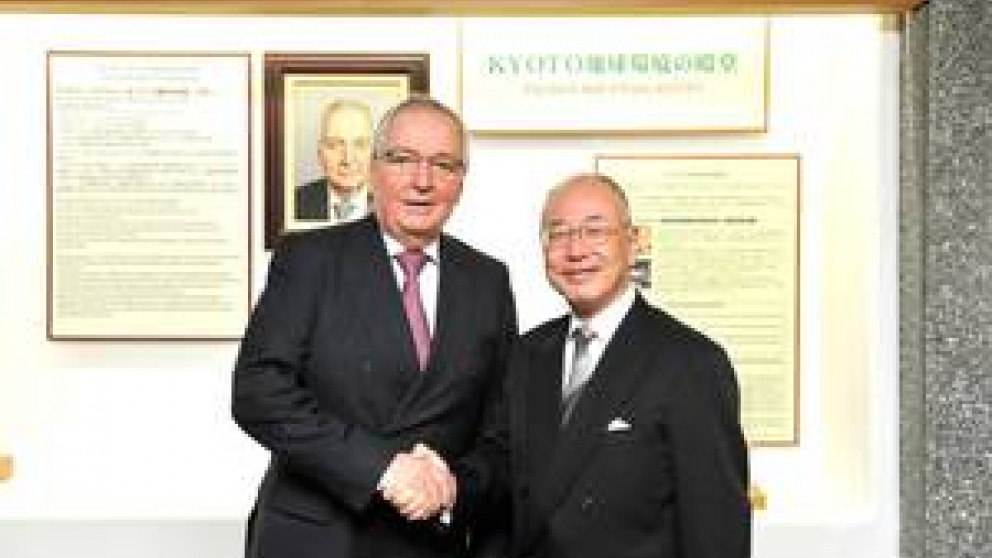Prof. Dr. Klaus Töpfer inducted into the Kyoto Earth Hall of Fame
14.02.2012

Fabruary 14, 2012. The Executive Director of the Institute for Advanced Sustainability Studies, Prof. Dr. Klaus Töpfer, was honored in Japan on Sunday when the Kyoto government administration inducted him into its Earth Hall of Fame. Kyoto selected Töpfer for this distinction in recognition of his many years of outstanding and path-breaking contribution and commitment to sustainability, the circular economy and environmental protection worldwide.

Lester R. Brown, American environmental pioneer founder of the World Watch Institute and director of the Earth Policy Institute, both in Washington D.C., was also honored alongside Töpfer on Sunday. Established in 2009 to honor in perpetuity the achievements of those who have contributed to conservation of the global environment, the Kyoto Earth Hall of Fame now has eight members, including former Prime Minister of Norway Gro Harlem Brundtland, Nobel Peace Prize winner Wangari Maathai of Kenia, Nobel Prize for Economics winner Elinor Ostrom and His Majesty Jigme Singye Wangchuk, fourth King of Bhutan.
After the induction ceremony on Sunday, Prof. Dr. Töpfer took part in the conference “Towards the Global Commons – Paths for the future after the Great Eastern Japan Earthquake” at the Kyoto International Conference Center, where the Kyoto Protocol was signed in 1997. In his speech, Prof. Töpfer stressed the opportunities and challenges presented by the energy transition in Germany, pointing out its significance for the entire world.
“Since the Chernobyl catastrophe, Germany has been doing everything in its power to develop alternatives to nuclear power. That now puts us in the position of effectuating the “energy transition” nationally, and of being a credible international partner in questions of sustainable energy supply.”
At the conference, Prof. Dr. Töpfer was impressed by the reports from Japan’s disaster region, and expressed his admiration for the ways in which the people of Japan have coped with the dire situation.
Of Japan’s original 54 nuclear reactors, said Töpfer, only three are still generating electricity – and these three will be shut down for inspection at the end of April, 2012.
Moreover, emphasized Töpfer, his visit to Japan serves to strengthen scientific exchange between the IASS and Japanese research institutes such as the Research Institute for Humanity and Nature (RIHN) and the Institute for Global Environmental Strategies (IGES).